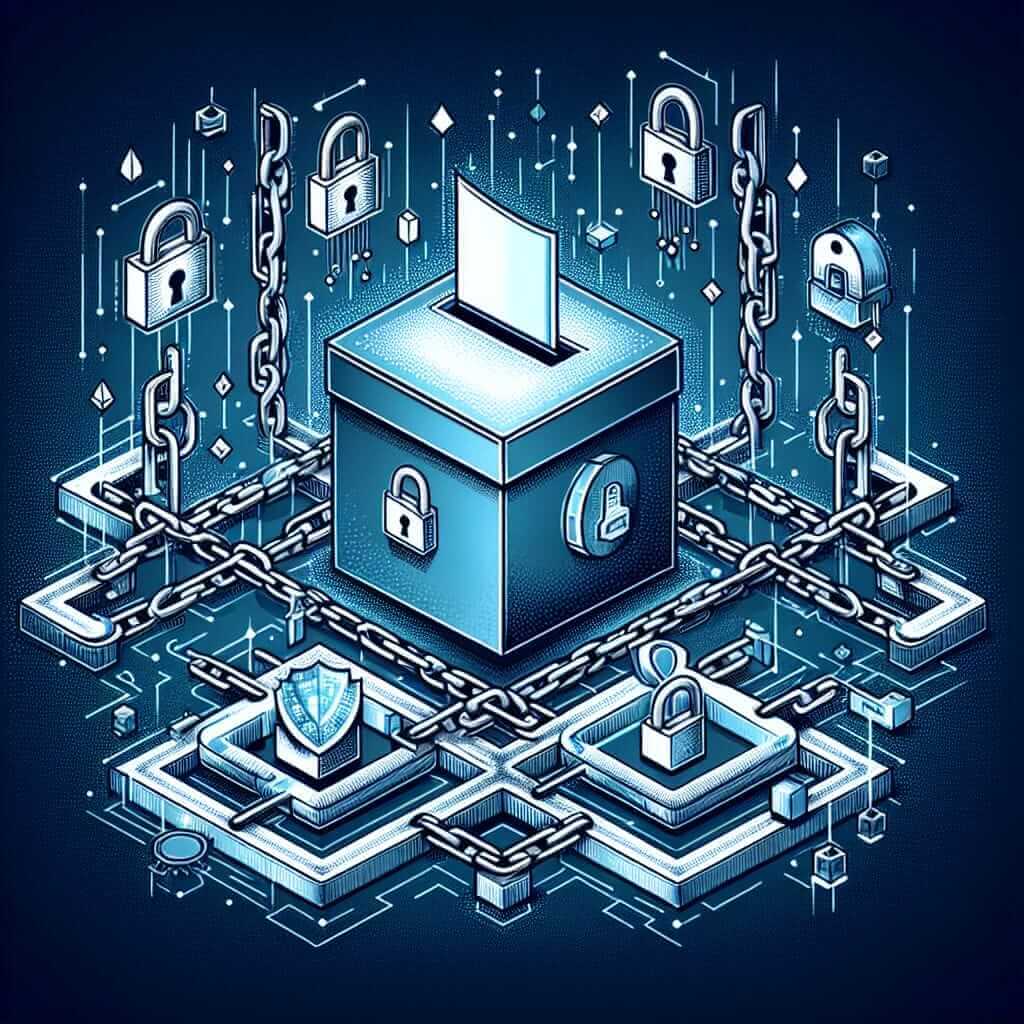The Reading module in the IELTS exam challenges candidates with a range of texts to assess their reading skills. Given the increasing application of blockchain technology in different sectors, topics related to it, such as “How is blockchain technology being used in voting systems?” have emerged as common subjects in IELTS exams. Understanding this topic is not only timely but also prepares candidates for potential future exam questions due to its relevance and frequency.
In this article, we will present an IELTS Reading practice test focused on this subject, complete with questions, answers, vocabulary, and grammar insights. This practice will help you gain familiarity with the language, themes, and questions you might encounter in the exam.
Practice Test
Reading Passage
Blockchain technology is increasingly being adopted in various fields, and one of its most intriguing uses is in voting systems. Traditional voting methods, which rely on paper ballots or centralized electronic systems, are often prone to fraud, tampering, and inefficiencies. Blockchain, due to its decentralized and immutable nature, presents a potential solution to these issues.
How Blockchain Enhances Voting Systems
Blockchain technology works by recording votes in blocks of data, which are then linked and secured using cryptographic principles. This makes it nearly impossible to alter votes without detection. Additionally, the decentralized nature of blockchain eliminates the need for a central authority, reducing the risk of manipulation.
Benefits and Challenges
There are numerous benefits to using blockchain in voting systems. Security and transparency are two of the most significant advantages. Each vote recorded on the blockchain can be audited and verified by anyone with access to the network, ensuring complete transparency. Furthermore, blockchain can significantly reduce costs associated with conducting elections by minimizing the need for physical infrastructure and manpower.
However, there are also challenges associated with blockchain voting. Technological barriers, such as the need for reliable internet access and the complexity of using digital platforms, may exclude certain demographics from participating. Additionally, there are concerns about the scalability of blockchain systems to accommodate large election processes and the energy consumption associated with blockchain networks.
Real-World Applications
Several countries have begun experimenting with blockchain voting systems. For example, Estonia has implemented a blockchain-based identity and voting system, allowing its citizens to cast votes online securely. Similarly, Switzerland has conducted pilot projects to test the feasibility of blockchain voting in local elections.

Questions
Multiple Choice
-
Which advantage of blockchain voting is mentioned in the passage?
- A. Reduced election costs
- B. Increased voter turnout
- C. Simplified vote counting
- D. Faster result announcement
-
What is a key challenge of blockchain voting according to the passage?
- A. Lack of transparency
- B. High costs
- C. Technological barriers
- D. Centralized control
Identifying Information (True/False/Not Given)
-
Blockchain voting systems eliminate the need for any form of physical infrastructure.
- True
- False
- Not Given
-
Estonia and Switzerland have permanently adopted blockchain voting for all their elections.
- True
- False
- Not Given
Sentence Completion
- Blockchain technology records votes in ___, which are linked and secured cryptographically.
- Security and _____ are significant advantages of blockchain voting.
Answer Keys and Explanations
- A – Reduced election costs are mentioned as a benefit of blockchain voting.
- C – Technological barriers are highlighted as a key challenge of blockchain voting.
- False – The passage mentions reducing, not eliminating, the need for physical infrastructure.
- False – The passage states that Estonia and Switzerland are experimenting or conducting pilot projects, not permanent adoption.
- blocks of data
- transparency
Common Mistakes
- Misunderstanding the context and assuming all technological advances can completely replace traditional systems.
- Overlooking key details such as the difference between experimenting with technology and fully implementing it.
Vocabulary
- Immutable (adj.): unchangeable, fixed – /ɪˈmjuːtəbl/ – Blockchain technology ensures votes, once recorded, are immutable.
- Cryptographic (adj.): relating to the technical methods of encoding data – /ˌkrɪptəˈɡræfɪk/ – Cryptographic techniques secure the connections between blocks of data.
- Scalability (n.): the capacity to be changed in size or scale – /ˌskeɪləˈbɪləti/ – A blockchain network’s scalability is crucial for managing large-scale elections.
Grammar
- Relative Clauses: “which are then linked and secured using cryptographic principles” uses a relative clause to provide more information about how votes are recorded.
- Passive Voice: “votes are recorded in blocks of data” emphasizes what is happening to the votes rather than who is recording them.
Tips for Scoring High in IELTS Reading
- Practice Regularly: Regular practice helps you get familiar with the format and types of questions.
- Improve Your Vocabulary: A robust vocabulary will aid in understanding passages better.
- Skimming and Scanning: These techniques help in quickly identifying key information in the text.
- Pay Attention to Keywords: Keywords in the questions often match or are synonymous with words in the passage.
- Time Management: Allocate your time wisely to ensure you can answer all questions within the time limit.
Embrace these strategies and integrate them into your study routine for effective preparation. Good luck!